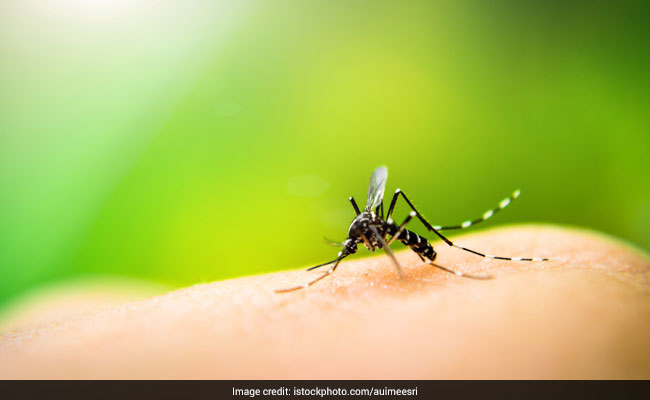The month of June is observed as anti-malaria month. Here are some precautions that can help you prevent malaria this monsoon.

Malaria can lead to symptoms like high fever, chills, vomiting and diarrhea
HIGHLIGHTS
- The month of June is observed as anti-malaria month
- Malaria is caused by the bite of an infected female Anopheles mosquito
- Fever with high temperature is a symptom of malaria
Monsoon brings along the grave threat of malaria which is caused by the bite of an infected female Anopheles mosquito. A mosquito bite makes a doorway for the parasite to enter a healthy body. It is then released in ones blood stream travelling to the liver. The diagnosis of malaria is based on the symptoms along with a blood test and physical examination. Though a variety of drugs are now available for the treatment of the deadly disease which should be taken under strict medical supervision, the best way to control it is to know about its precautions and preventions.
The initial symptoms of a patient diagnosed with malaria would be high fever with shaking chills. It is estimated that every year, there are 210 million people infected with malaria, of which about 440,000 die from the disease. The worst part is malaria fatally affects a large number of young children.
Apart from mosquito bite, the virus can also spread:
- From mother to unborn child
- Through blood transfusions
- By sharing needles used to inject drugs
Also read: 3 Natural, Most Effective Ways To Keep Mosquitoes Away And Prevent Dengue, Malaria
Symptoms of malaria you must lookout for
Typically, malaria signs and symptoms begin within a few weeks after being bitten by an infected mosquito. An infected patient may experience:
- Fever with high temperature
- Chills
- Headache
- General feeling of discomfort
- Vomiting and nausea
- Diarrhea
- Abdominal pain
- Intense sweating
- Joint or muscle pain
- Bloody stools
- Rapid breathing
- Cough
- Rapid heart rate

Malaria can lead to muscle and joint pain with high fever
Photo Credit: iStock
Prevention of malaria
The best way to avoid malaria is to take proper precautions. The most effective way is to make sure to stay safe from mosquito bites that is the primary reason for the onset of this disease. The severity of the disease may vary from person to person depending on one's past health record and present physical condition. Some of the preventive measures to control malaria and stop it from spreading further are:
- Always wear full sleeve clothing.
- Use insect repellants on the exposed skin. It is also important to reapply it after some time.
- In addition to spraying insect repellants on the exposed skin, it also important to spray the repellant on the clothing. Thin clothing may not be able to prevent the bite as mosquitoes easily find it easy through. Also it is advisable to wear loose-fitted clothes instead of tight ones.
- The most effective way is to use a mosquito net over the bed if your bedroom isn't air-conditioned or screened. For advance safety, a person can treat the mosquito net with the insecticide permethrin.
- It is very important to keep your home and surroundings clean and hygienic.
- One has to make sure that the doors and windows are not kept open as mosquitoes pose higher risk at night.
- When it comes to controlling the disease, keep an eye out for the symptoms like fever with high temperature. As soon as you find any possible signs of malaria, consult your doctor immediately.
Also read: Soups Can Save You From Malaria, Says Study; Know Other Diet Tips To Fight Malaria
Depending on the condition, a patient can take anti-malarial tablets based on doctor's prescription. The doctor would usually advice to follow a 2-week course, which must be strictly followed.
So far, the most effective way to prevent and reduced malaria transmission is adopt vector control. With sufficient vector control interventions strategies and effective precautionary measures, the spread of this deadly disease can be curbed across the community.
(Dr. Deepak Verma, Internal Medicine, Columbia Asia Hospital, Ghaziabad (A unit of Manipal Hospitals))
Disclaimer: The opinions expressed within this article are the personal opinions of the author. NDTV is not responsible for the accuracy, completeness, suitability, or validity of any information on this article. All information is provided on an as-is basis. The information, facts or opinions appearing in the article do not reflect the views of NDTV and NDTV does not assume any responsibility or liability for the same.
DoctorNDTV is the one stop site for all your health needs providing the most credible health information, health news and tips with expert advice on healthy living, diet plans, informative videos etc. You can get the most relevant and accurate info you need about health problems like diabetes, cancer, pregnancy, HIV and AIDS, weight loss and many other lifestyle diseases. We have a panel of over 350 experts who help us develop content by giving their valuable inputs and bringing to us the latest in the world of healthcare.













